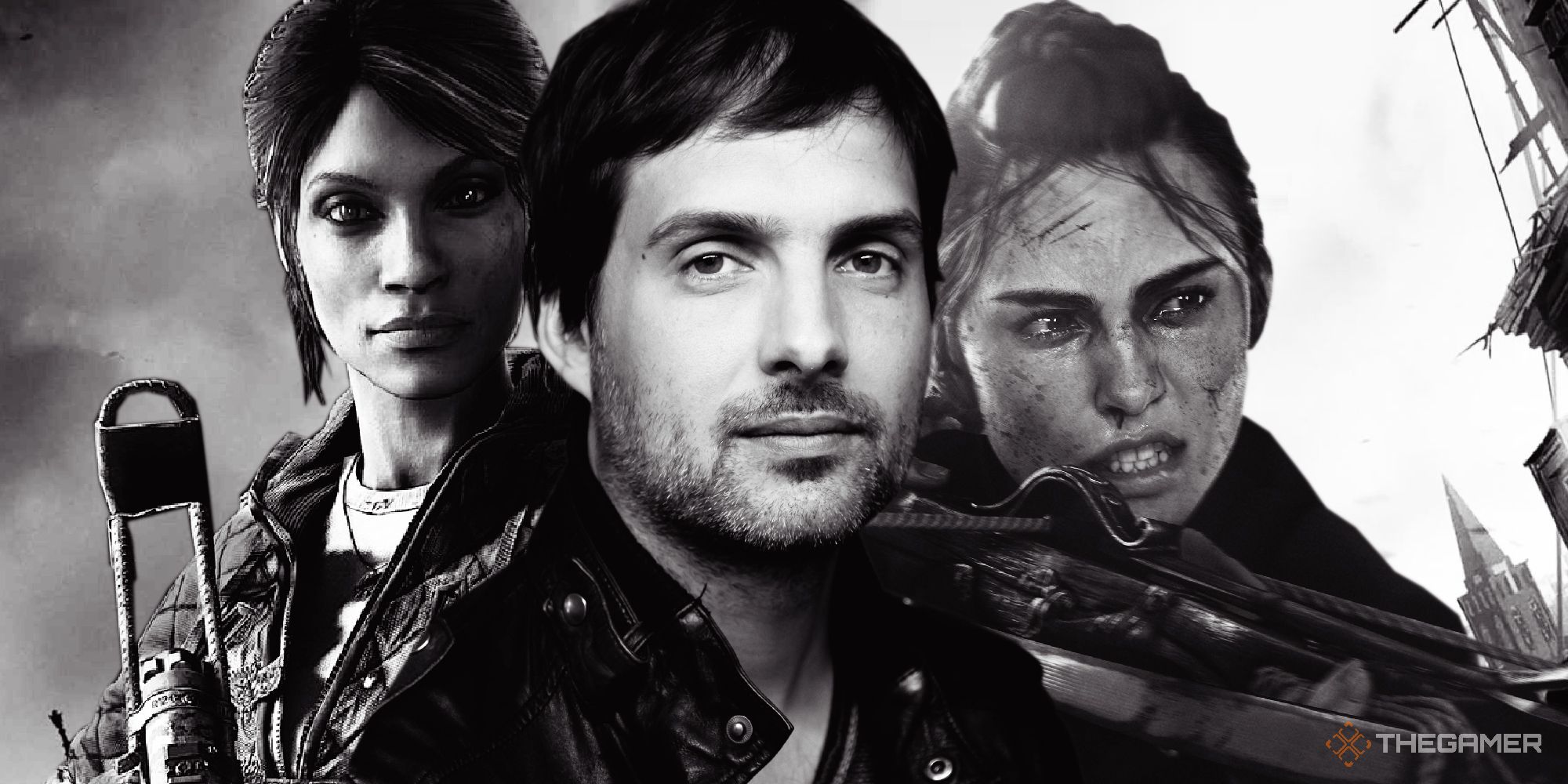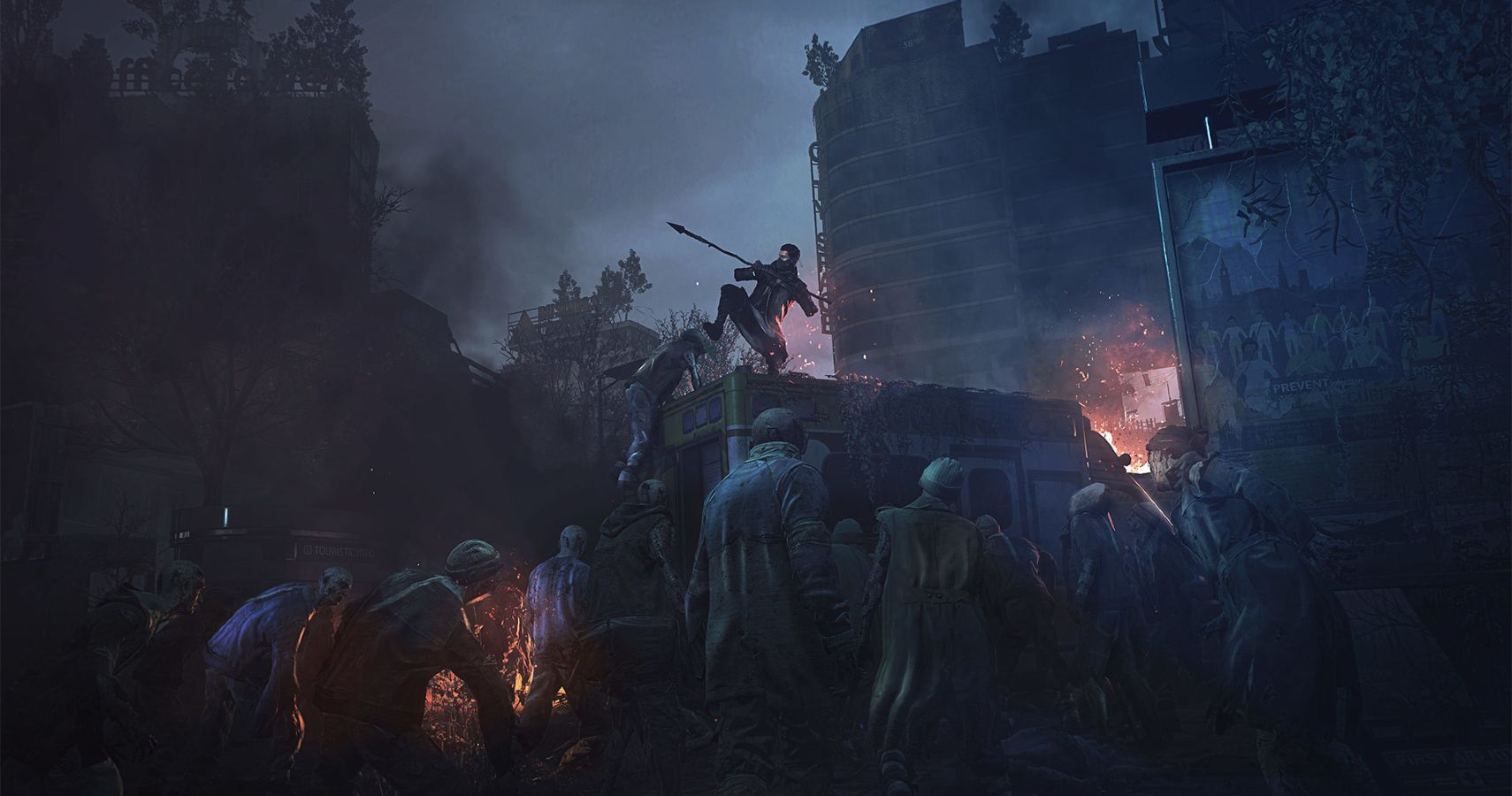Composer Olivier Deriviere Interview: “I’ve Played More Than 2,000 Hours Of Dying Light 2”
We sit down with composer Olivier Deriviere to talk about his career, his work on Dying Light 2’s music, and creating ‘interactive music’.
You Are Reading :Composer Olivier Deriviere Interview “I’ve Played More Than 2000 Hours Of Dying Light 2”

“It’s interactivity. That’s what games are about, aren’t they?” composer Olivier Deriviere explains. “Playing games gives power to the players, so the music should serve that experience. I know that a powerful music piece can really create a great effect, but if you make it interactive then it becomes a momentum for the players. They will feel that everything at this very moment is tailored around their experience.”
While he has been working in the video games industry for two decades now, you might know Olivier Deriviere for his most recent projects. Deriviere is the composer behind A Plague Tale: Innocence, wrote many of the bangers you hear in Streets of Rage 4, and composed the music for zombie apocalypse sim Dying Light 2. However, his work in the game industry goes way back, with the horror series Obscure, and other interesting projects such as Get Even and Remember Me.
Composing music for a video game is one thing. Creating ‘interactive music’, as he likes to call it, is another entirely. Deriviere is most interested in how his work can interact with your actions and the world around you. Instead of using music as that thing you hear in the background, he tries to create a living being that watches every step you take. “My most important work is about understanding the game and how the players will experience it,” the composer explains.
.jpg)
Deriviere’s design philosophy can be traced back to his time playing Master Chief’s first adventure. “Halo: Combat Evolved on Xbox was one of the most exciting music design examples I’ve been influenced by,” Deriviere says. “The way music would punctuate the action was a real fresh take and an amazing execution.”
Since then, the composer has been doing his best to recreate this experience with his own projects. Arguably one of his most interesting works is the ‘Real-Time-Generated-Music’ system he created for the 2017 first-person shooter Get Even. Here, ordinary noises like a door being opened and closed repeatedly, a police siren, some characters singing, or your own heartbeat can synchronize with the music and your actions and create a unique experience that can’t be found in many other games.
According to Olivier Deriviere, Dying Light 2 is his most ambitious experiment, and his first time working in an open-world game. Due to the scope of the game, the composer created a system like nothing he had crafted before.
“Instead of creating background and illustrative music, I’ve built music systems for everything that players go through,” Deriviere explains. “Each gameplay mechanic has its own music progression based on what you’re doing. But it was not enough for me, I wanted to support the storytelling within the open world. I ended up with the craziest music structure I have done to date, so anything you are doing in Dying light 2 makes the music progress.”
This can be found, for example, when exploring the different levels of Villedor, the city in which the game takes place. Depending on whether you’re roaming the streets or running from one building’s roof to another, the music will play out differently. Tunes in the street will sound ‘basic’, with few instruments and a low volume, but they will get richer and louder as you gain altitude and movement. The whole orchestra will explode as you’re parkouring your way out of the undead. “I think this gives the game a sense of progression that supports both the story and the player’s progression,” the composer affirms.

If reading about this process sounds complex, creating it is another story. Deriviere spent almost three years crafting and testing this whole system in every aspect of the game. Naturally, he would have needed to play the game to see the results of his work. Due to the significant amount of content presented in Dying Light 2, he spent quite some time killing zombies and parkouring — over 2,000 hours, in fact.
“I think this is the only way for me to really get the feelings that gamers will experience,” he says. “Telling a story is very important, but it is not a movie, it is an interactive experience, and if you think about scoring a game like a movie, you are missing a lot of opportunities. If you don’t play the game you are making music for, it’s like scoring a movie without watching it.”
The composer worked with the London Contemporary Orchestra because it has an arrangement of musicians who can “create new textures and sounds based on traditional instruments.” These elements were key in creating a ‘broken world’, the theme creative director Adrian Ciszewski wanted for the game: a search about humanity “losing control and gaining it back”, and the journey “from despair to hope” while living in an apocalypse, which turned out to be the wide variety of music you can hear while playing the game.

Deriviere is returning to A Plague Tale as the lead composer for the sequel Requiem. “As many players know, the first game was very special to me,” he says. “I am back working with the amazing team at Asobo Studio to deliver an experience that players won’t forget.”
You can check Olivier Deriviere’s work and explanations of the interactive music systems he used on his YouTube channel.
Link Source : https://www.thegamer.com/dying-light-2-composer-olivier-deriviere-interview/
